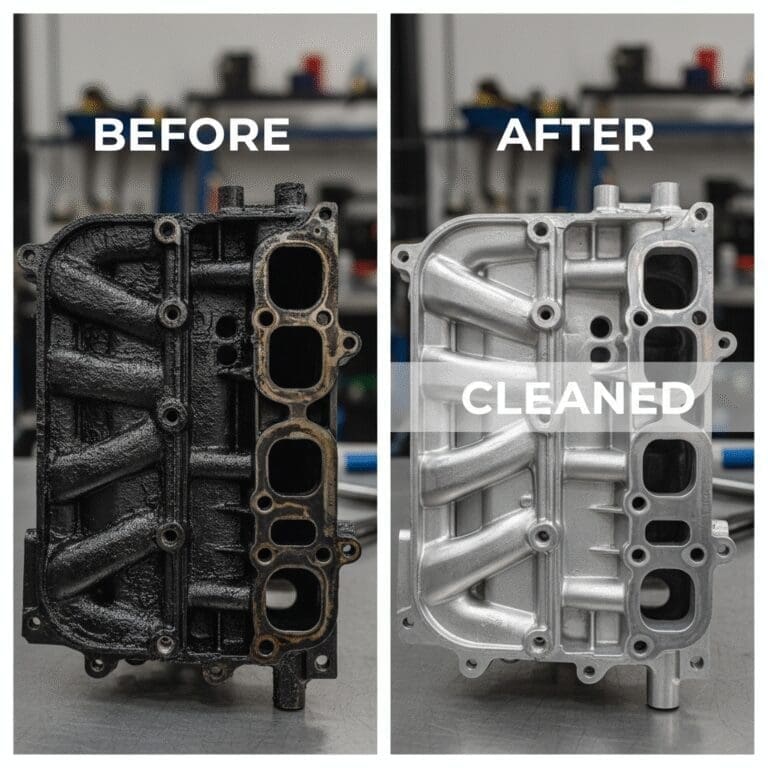Few things kill performance faster than an engine misfire. It’s more than just a rough idle — each misfire robs torque, raises emissions, and can damage your catalytic converter or DPF. Here’s how to understand the common misfire codes and what to check before booking a remap.
What a misfire really means
Table of Contents
ToggleA misfire happens when one or more cylinders fail to burn the air-fuel mix correctly. The ECU monitors crankshaft speed, coil signals, and oxygen levels. When it detects an irregular pulse, it logs a code and may cut fuel to protect the engine. Even small misfires can trigger limp mode or reduce power output by 10-30 BHP.
Common misfire codes and what they mean
- P0300: Random or multiple cylinder misfire detected. Usually caused by ignition, fuelling, or vacuum issues.
- P0301 – P0308: Misfire detected in a specific cylinder (e.g. P0302 = Cylinder 2). Helps pinpoint which coil or injector to inspect.
- P1300–P1310: Manufacturer-specific ignition faults on VW, BMW, and Ford models. Often linked to coil-on-plug failures.
Clearing these codes without fixing the cause will only hide the problem temporarily. Always diagnose first using professional tools like Autotuner or CMD Flash data logs.
1) Ignition system checks
The most frequent cause of a P0300-series fault is a weak spark. Worn plugs, corroded connectors, or failing coil packs lead to incomplete combustion. We test each coil under load using live misfire counters. If spark voltage is unstable, we replace coils and plugs before any tuning.
Tip: stick to OEM-grade plugs and correct heat range. Cheap aftermarket parts often misfire at high boost once a remap increases cylinder pressure.
2) Injector and fuel delivery tests
Low fuel pressure or dirty injectors can mimic ignition faults. Modern direct-injection engines rely on precise spray patterns — a blocked nozzle throws fuelling off balance and triggers a misfire. We check injector correction values and fuel rail pressure using live data from our diagnostic service.
If pressure or balance is off, injectors are ultrasonically cleaned or replaced before remapping to prevent lean spots.
3) Air intake and vacuum leaks
Unmetered air between the MAF sensor and intake manifold causes lean running and random misfires. Split hoses, cracked breather pipes, or loose clamps are common. A simple smoke test often reveals leaks in minutes. Once sealed, fuel trims stabilise and power returns to normal.
See also: MAF & MAP Sensor Failure – Hidden Killers of Car Performance.
4) Compression and mechanical health
If one cylinder consistently misfires, mechanical wear may be to blame. Low compression from burnt valves, piston rings, or timing chain stretch can’t be fixed with software. We carry out compression and leak-down tests when misfires persist after electrical and fuel checks.
Learn about timing-chain symptoms in our post Cold Start Rattle – Timing Chain Issues Explained.
5) EGR and carbon build-up
Stuck EGR valves or carboned-up intake ports upset airflow balance between cylinders. The result: rough idle, smoke, and inconsistent torque. Cleaning the intake and EGR passages often cures stubborn misfires on diesels. On petrol engines, walnut blasting or induction cleaning removes deposits and restores smooth running.
6) Sensor feedback faults
O₂ sensors, crank sensors, and cam sensors feed timing information to the ECU. Erratic signals throw ignition timing off and create misfire codes even when the mechanical side is fine. We scope sensor signals to confirm alignment before adjusting maps or advancing timing on tuned engines.
How misfires affect BHP
Every misfire means lost power. The ECU cuts fuel to the affected cylinder to protect the cat and DPF, reducing effective output. Long-term misfires foul spark plugs, damage coil drivers, and overheat catalysts. On turbo engines, the ECU may close the wastegate and drop boost entirely until the fault clears.
Once repaired, a BHP check by reg confirms the engine is making full power again before any remap is applied.
Preventing future misfires
- Use quality fuel and change plugs at correct intervals.
- Inspect coil packs for cracks or oil contamination.
- Clean injectors and fuel filters every 40–50 k miles.
- Fix oil leaks — oil on coils causes tracking and misfires.
- Keep the battery and alternator healthy; low voltage affects spark strength.
Book a misfire diagnosis before remapping
Thinking about tuning your car but have a check-engine light or rough idle? Don’t risk it. Our team will find the cause, fix it, and prepare your engine for safe tuning.
Call 074040 22260 or book online at proremapping.com. We cover Stoke-on-Trent, Staffordshire Moorlands, and Cheshire East.



